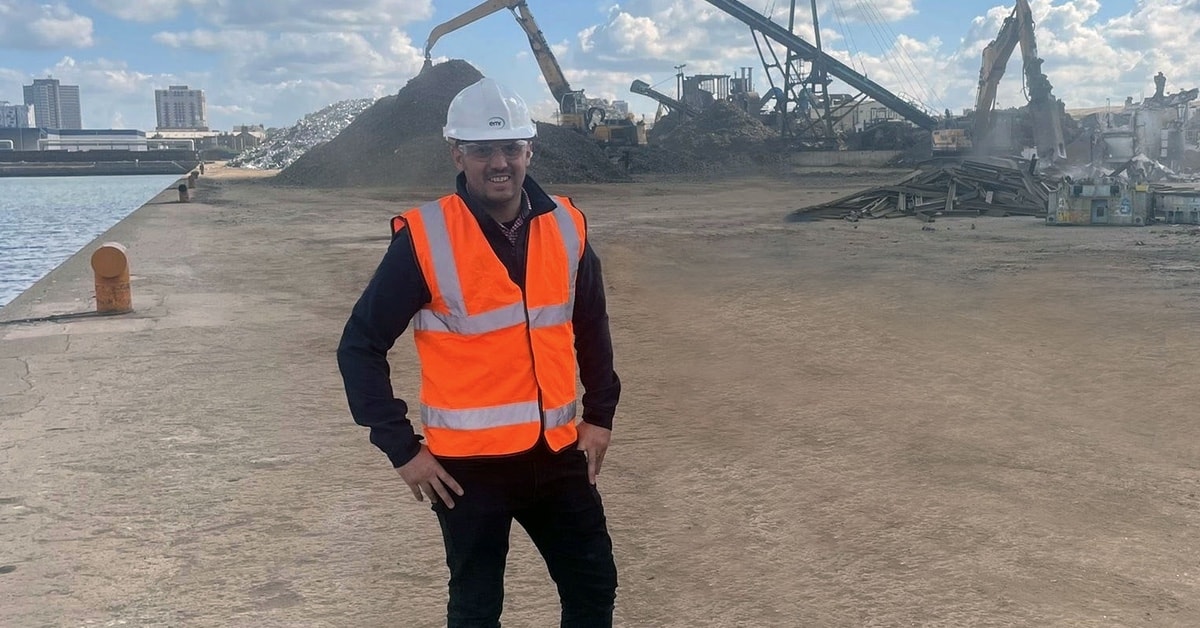CHOOSE
A DIFFERENT TERRITORY

Once seen as relevant only to those at the very beginning of their careers, apprenticeships have become one of the most valuable ways for employees and job seekers to gain important new skills, whatever their age or position.
“Apprenticeships help EMR ensure it has the right people in the right roles while giving our people an opportunity to progress their careers too,” says Tom Russell, Learning and Development Manager at EMR.
“And where we identify a skills gap in our team, we can also use apprenticeships to bring people in and develop them,” says Tom.
Despite the breadth of apprenticeships available – at EMR and across the economy – there are still many misconceptions about these invaluable in-work training opportunities. With the arrival of Apprenticeship Week, EMR asked Tom to debunk some of the most common myths about apprenticeships he has come across.
Because the traditional image of an apprentice is somebody just starting out in their career, there is also a perception that apprenticeships are invariably vocational, entry-level qualifications. Not true, says Tom:
“There’s a huge range of apprenticeships available. Some provide degree-level qualifications with some academic elements involved. The degree you get at the end of these courses is just as valuable as any three-year university degree.”
In fact, Tom is currently studying for a masters-level apprenticeship, equivalent to an MBA, allowing him to progress to the senior leadership team at EMR.
And these degree level apprenticeships offer additional benefits compared to studying at university.
“Alongside a degree, these apprenticeships provide you with a certificate that shows your employer that you can apply what you’ve learned in a work environment,” says Tom.
While apprenticeships can help you gain academic qualifications alongside in-work training and a salary, they can also offer those who wish to follow a more vocational route the opportunity to gain qualifications, too.
“Level 2 and 3 apprenticeships provide a great option for people to gain skills without having to go down an academic route,” says Tom. “There are minimum Maths and English requirements but EMR will support any apprentice who doesn’t already have these to get them.”
A Level 3 apprenticeship is equal to an A-level and offers career progression opportunities in a broad range of EMR departments including Maintenance, HR, Learning and Development and Transport.
“One of the biggest misconceptions that exists around apprenticeships is that you have to do them for free,” says Tom. “It’s a fully paid role.”
EMR carefully chooses the number of apprenticeships – and the focus of each course – to ensure it has the right number of employees with the right skillset, ensuring there is a job available to every individual who goes through the process.
And Tom says the on-the-job training that lies at the heart of an apprenticeship allows EMR to pay significantly above the national minimum wage for apprentices:
“We don’t pay anywhere near the minimum wage because we get a lot value from our apprentices almost immediately. As a business that allows us to review an individual’s salary and step it up very quickly.”
Rather than employing apprentices instead of people in the local area, EMR uses apprenticeships to give skills and career opportunities to those living in the community.
“A lot of our apprentices are recruited from the local area across our more than 60 sites in the UK,” says Tom.
And the investment that EMR makes in these apprentices is considerable.
“EMR pays anywhere between £6,000 and £27,000 through the Apprenticeship Levy for every person who goes through one of these courses,” says Tom. “We get a huge amount of value back in return, of course, but it is a sign of the commitment EMR is willing to make both in our staff and in our communities.”